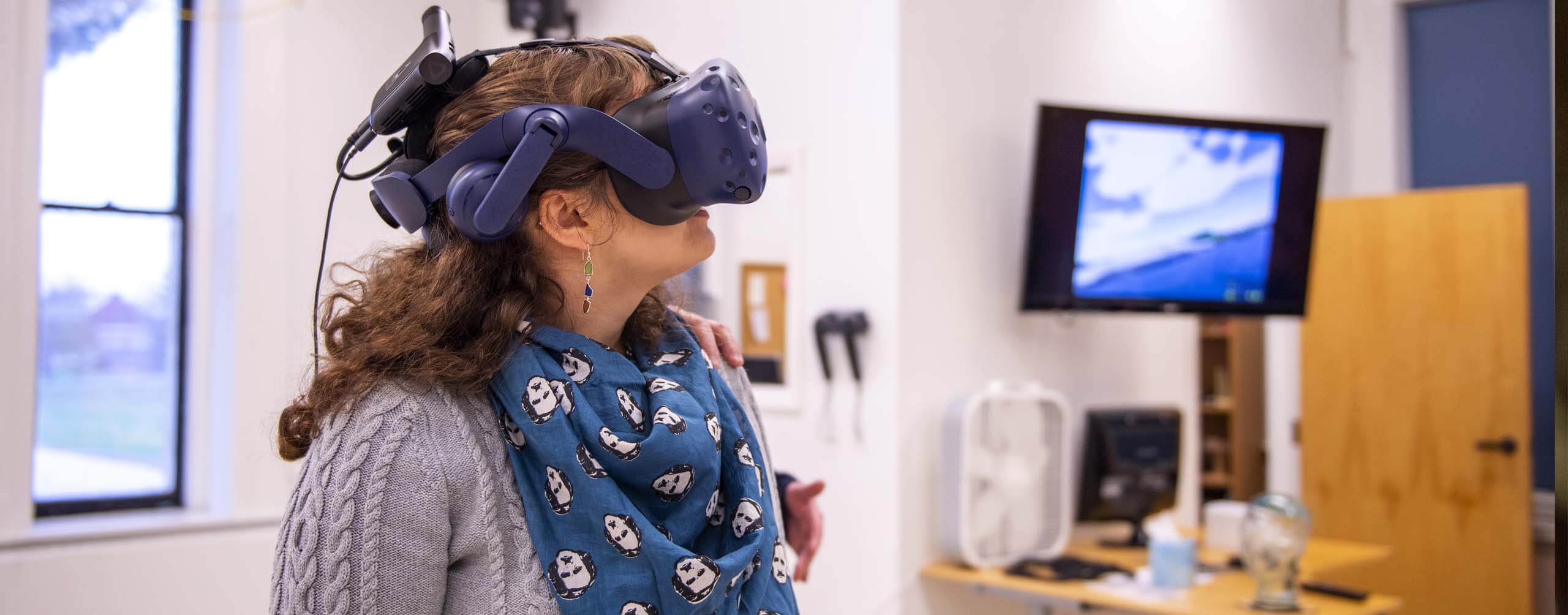
Computer Science
College of Liberal Arts and Sciences
Computing and information science pervades all aspects of modern society and graduates of the School of Computing and Information Science are in high demand in Maine and around the country. With a computer science degree you will understand and realize the potential of computation, and design and build information systems, networks and computational platforms that advance knowledge and benefit society.
The School of Computing and Information Science educates students in the foundations of the field and exposes them to cutting-edge research. Our labs and facilities offer state-of-the art and accessible learning environments where students can work individually and with others in exploring the various aspects of computing and information science. Students can undertake research in new areas, such as mobile systems, wireless sensor networks, robotics and autonomous agents, new modes of human computer interaction, cybersecurity and spatial informatics.
Core areas of computer science include databases, high-performance computing,
artificial intelligence, computer networks, computer graphics, software engineering,
operating systems, programming languages, cybersecurity and computer organization
and architecture. Computer science intersects other sciences to form fields such
as computational biology and bioinformatics, medical informatics, computational
chemistry, cognitive science, robotics, and computational linguistics. Knowledge of
computer science, beyond simply what is needed to implement and use information
systems, is increasingly important in\ medicine, business, law, and science, as well
as being important for making informed decisions about technology.
Skills and knowledge obtained through our degree programs can be applied to address
scientific, biomedical and health challenges, enable new knowledge discovery through
data science, address system security and privacy, and make systems easier for people
to use, among many other societal challenges. Graduates qualify for jobs in high-tech
industries, software development firms, engineering consulting companies, government
agencies and research laboratories.
Our ABET-accredited B.S. degree provides training in computational thinking and action. The degree provides fundamental theoretical knowledge, along with knowledge of tools to solve real-world problems. Students can take electives in machine learning, databases, computer vision, video game programming, data visualization, cloud computing and artificial intelligence. Students can pursue game programming in more advanced courses that show how the tools to build exciting games are useful models for solving critical scientific and engineering problems.
Christopher Dufour
Undergraduate Coordinator
Boardman Hall, Room 134
christopher.dufour@maine.edu
Roy Turner
Undergraduate Coordinator
Boardman Hall, Room 134
rturner@maine.edu
Computer Science
College of Liberal Arts and Sciences
Boardman Hall, Room 348
207.581.2188
